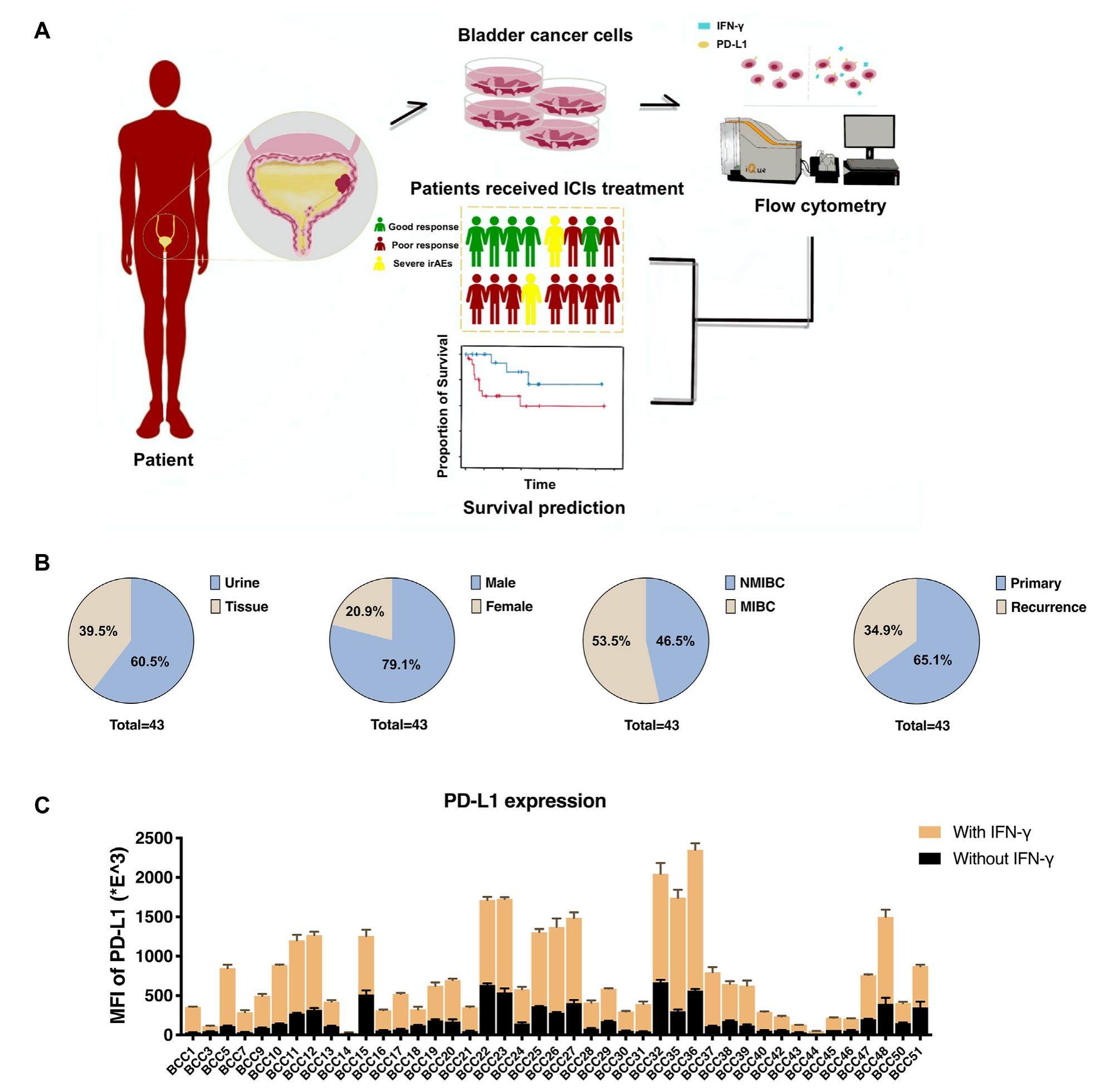
A novel in vitro prognostic model of bladder cancer based on urine-derived living tumor cells


Bladder cancer (BLCA) remains a difficult malignancy to manage because of its high recurrence, intense follow-up, and invasive diagnostic and treatment techniques. Immune checkpoint inhibitors (ICIs) have forged a new direction for the treatment of BLCA, but it is currently challenging to predict whether an individual patient will be sensitive to ICIs. We collected 43 urine/tumor samples from BLCA patients for primary bladder cancer cells (BCCs) culturing using our previously reported BCC culture platform. We used flow cytometry (FCM) to measure the expression levels of Programmed Death-Ligand 1 (PD-L1) on BCCs before and after interferon-gamma (IFN-g) treatment and found that PD-L1 expression and the sensitivities to IFN-g varied among patients. RNA-sequencing, western blotting, and programmed death-1 (PD-1) binding assays confirmed that the BCC FCM-based PD-L1 detection platform (BC-PD-L1) was reliable and was not hindered by the glycosylation of PD-L1. In the subsequent retrospective study, we found that IFN-g-stimulated PD-L1 (sPD-L1) expression on BCCs detected by BC-PD-L1 could predict the prognosis of BLCA patients. Importantly, the prognostic value was similar or even better in urine-derived BC-PD-L1 (UBC-PD-L1). Transcriptome analysis showed that BCCs with high sPD-L1 tended to enrich genes associated with the collagen-containing extracellular matrix, cellecell adhesion, and positive regulation of the immune system. In addition, the UBC-PD-L1 also exhibited predictive value for ICI response in BLCA patients. In conclusion, as a novel personalized urine-detection method, UBC-PD-L1 may provide a rapid, accurate, and non-invasive tool for monitoring tumor progression, predicting therapeutic responses, and helping improve BLCA clinical treatment in future.
